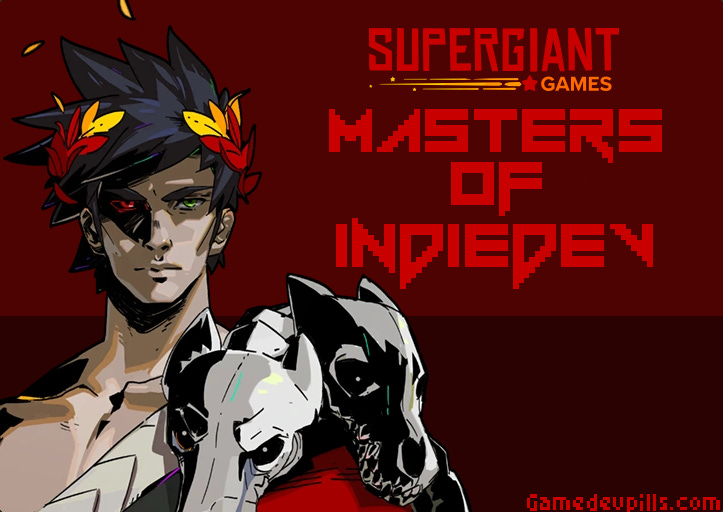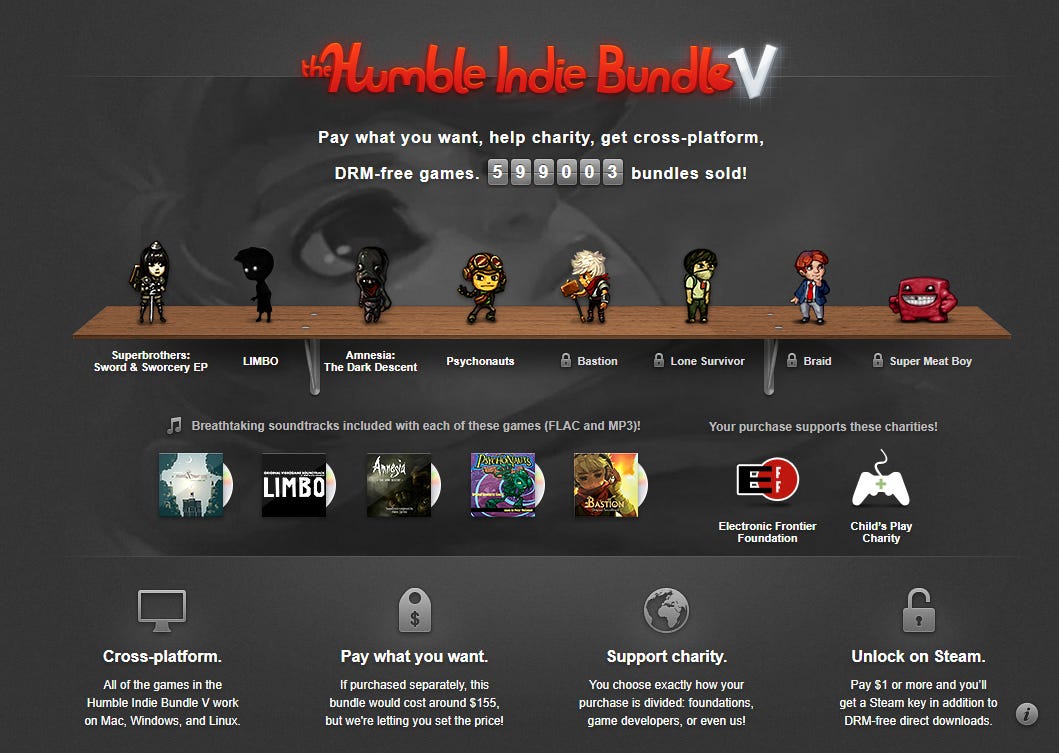From Bastion to Hades: How Supergiant Games Became Masters of Indiedev
An industry lens on how their gamedev philosophy shaped one of the most consistent indie studios of our time.
Hello my fellow players and gamedevs!
Every time I start a conversation with someone about videogames that doesn’t know much about this hobby, they tend to ask “What is your favourite game ever?” No surprise, I can’t answer that question across all the titles I ever played.
I have 311 games on Steam and I have more platforms where I play, almost an impossible choice.
But the person I’m talking to is waiting for an answer, what if I say… I don’t have, I just like videogames! — Far away from being a bad answer…it doesn’t help.
Then I turn things around and I start thinking about Narrative-driven games and Roguelikes, at that moment my brain just triggers one Indie studio: Supergiant games.
Finally I have my answer — I really enjoy games that are endlessly replayable, like Hades, and ones that are deeply story-driven, like Transistor, developed by my favourite Indie Studio.
With the freedom that comes with writing, I want to offer a small ode to this studio and its legacy. Their games are ones I never stop recommending.
(One day they may read this article and I would be the most happier human of this world)
You are on substack and you probably know how important it is to have your own identity and stand out from the rest, supergiant games titles are unique, let’s start with some history.
How I met Supergiant Games?
We should go back to 2012, at that time I was studying computer engineering, I specifically remember we were learning the Java language when, after that class, a collegue came and said to me:
“Hey Jose! Did you saw the new Humble Bundle?”
“No, humble bundle? what is that?”
“Come have a look, a lot of games for just 1$! I heard Braid is really good.”
“Oh that looks cool! I like that guy with a hammer, I will check at home.”
When I arrived at home I opened the browser and started searching for Humble Bundle…
Not only bastion, but other golden indie era games were together at the same pack (Braid, Super Meat Boy, Limbo) — at that moment I wasn’t really aware of how huge was that videogame industry moment.
I had no doubt about purchasing it. I remember I didn’t have PayPal or any online payment platform to buy it, so I reached out to my dad and said: “Please, can I borrow your PayPal for this games deal?” After some doubts, he bought them for me.
I had the pillars of indie gamedev — crazy to think about.
Bastion - August, 2011
Playing Bastion
On previous post I wrote on gamedevpills.com (This Substack) — I always emphasized the importance of Game Feel when we start creating our prototypes or small games, Supergiant Games knew that really well, and they still do.
The first time you play bastion, just during the first few seconds, you can feel how different it was from other proposals. Strong Personality is the main aspect of their games.
Your character wakes up in the middle of nowhere and you start listening a voice in-off (Logan Cunningham, voice narrator of Supergiant games) telling you the storyline about the calamity.
Spoiler Free Clip - Beginning of Bastion
Art
The Art direction of bastion is connected to the world building they designed as soon as you walk through the different connections between each area you can see Tiles (ground) and Decorations falling down as a representation of the Calamity on Bastion’s world.
Music/Sound
The soundtrack of Bastion is really good per se, their rhythms and FX Sounds are suggesting an aventure across an unknown king of tropical wild world that you are about to discover.
But the main booster of the sound experience is the voice-over from Logan Cunningham across the whole game to narrating the storyline but also mentioning the actions and events we experience as players (when we fall down, when we obtain a new object…).
I swear at the moment you play Bastion or even Transistor, you feel like the game is literally speaking to you.
Character/Camera/Controls
As I mentioned on my previous post this is an important aspect of videogame design, taking into consideration this game was developed back in 2011, standards of game-feel were slightly different.
Character movement feels right but at the same time slow and a little bit chunky. The camera, on the other side, feels right and is always character-centered. Controls are simple and responsive.
We can say Camera (World perspective) and Controls are good enough to provide a good experience even tho character movement is not extremely polished.







